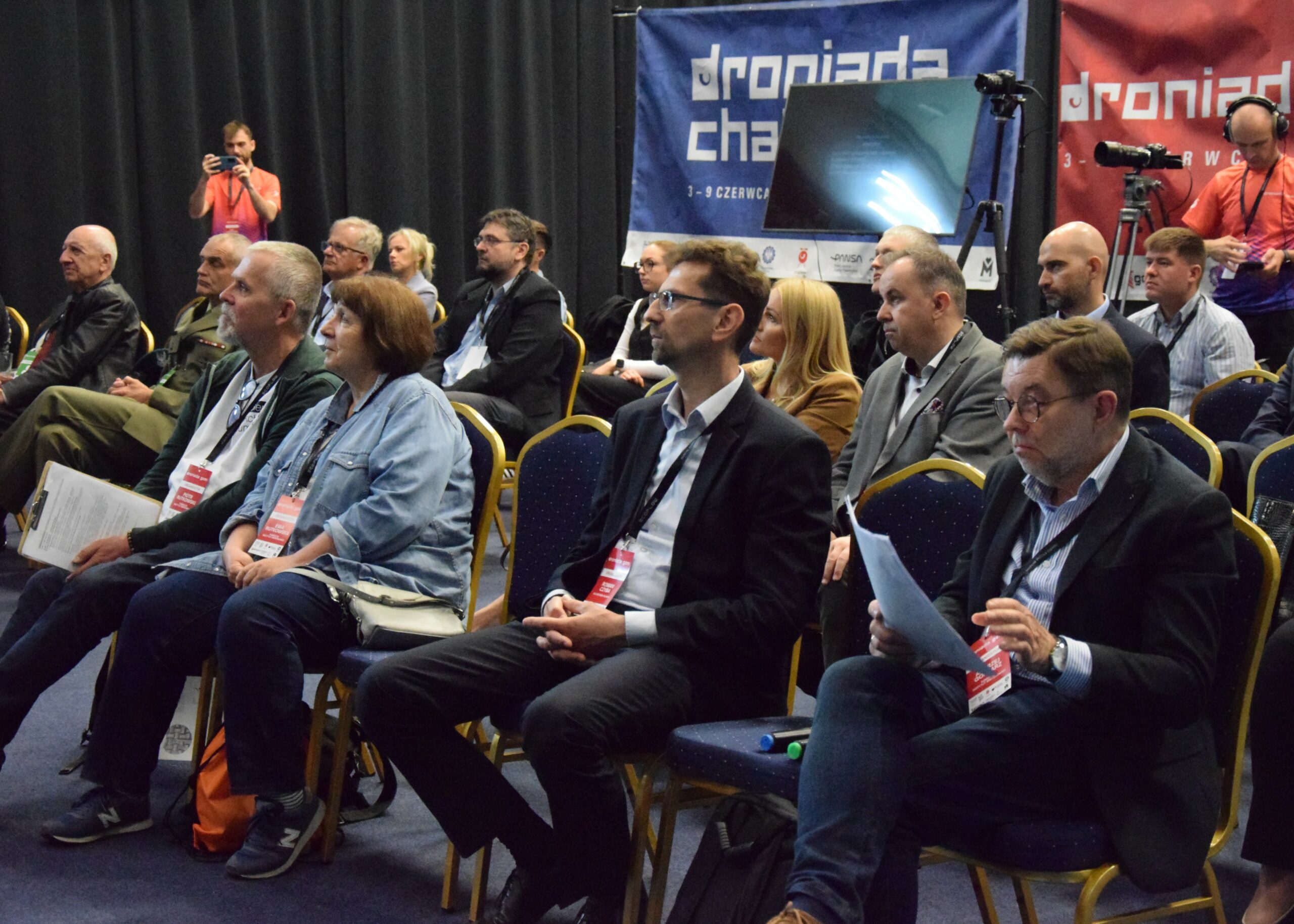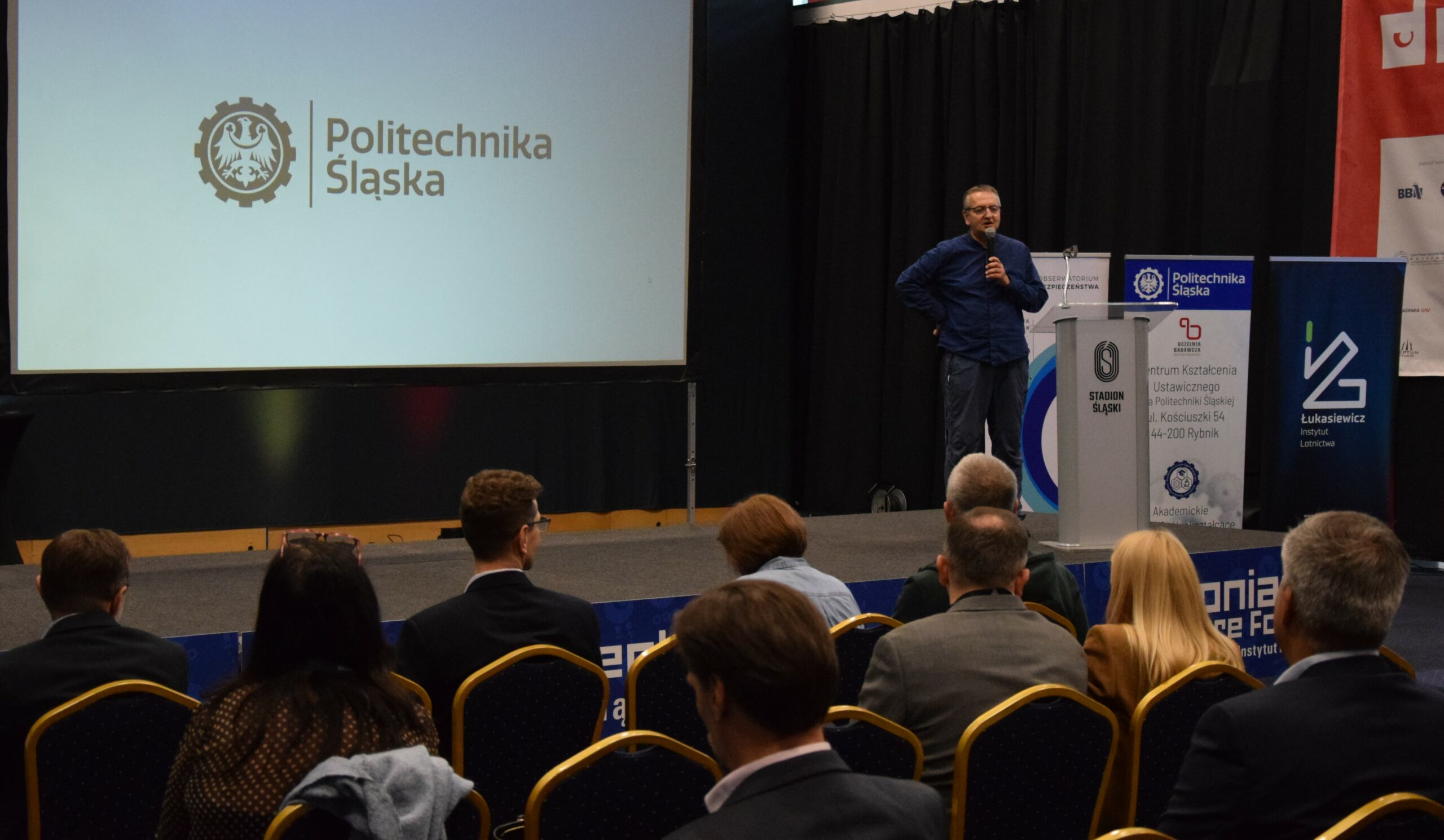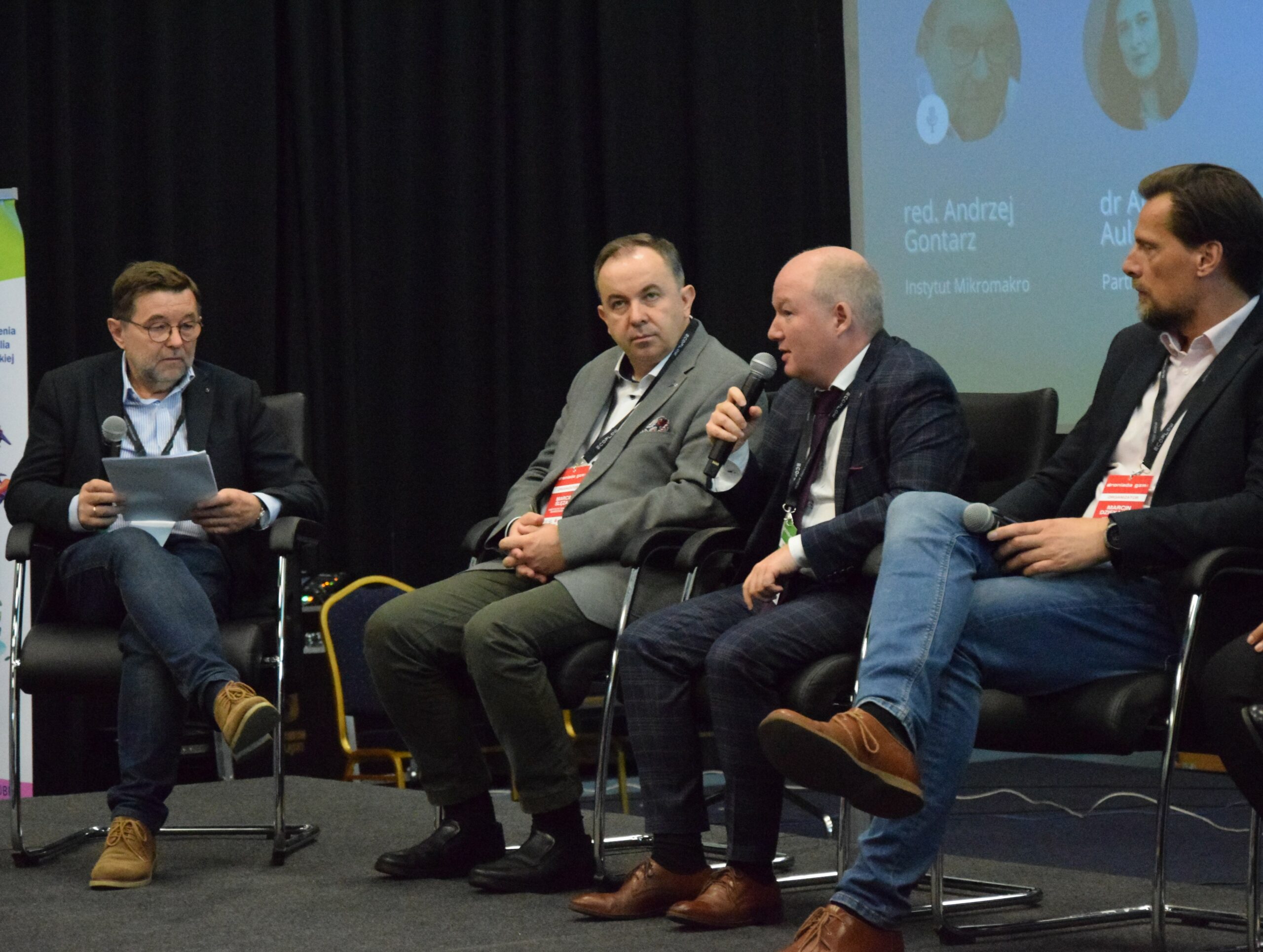Start - Aktualności - They talked about the future of robotic mobility

They talked about the future of robotic mobility
The second Droniada Tech by Silesian University of Technology conference is behind us. For two days at the Silesian Stadium Conference and Business Centre in Chorzów, twenty-five speakers discussed the challenges of robotic road, rail, sea, and air mobility. The event took place as part of the 11th edition of Droniada, which is co-organised by our University for the third time.
This year, the main topic of the Droniada Tech by Silesian University of Technology conference was robotic mobility, which was discussed by scientists from our University and people from the socio-economic environment.
“By 2030, autonomous transport will become an important part of the global economy. Therefore, we should stop talking about autonomy separately. If it is to break through and be the basic mechanism of our robotic mobility, we should think about it together. These are the same economic, social, and technical challenges for trains, cars, ships, or drones” – explains Sławomir Kosieliński, President of the Mikromakro Institute Foundation and the originator of Droniada. Artificial intelligence plays a key role in the transformation of various transport sectors. There is currently an autonomous bus called Blees in the Silesian Park. At the same time, similar vehicle, but developed by Renault, drives during the Roland Garros tennis tournament in Paris between the parking lot and the stadium. We are slowly moving from the experimental phase to the application phase. Such a vehicle will go where it is not profitable and there is no need to send a man. Perhaps it will appear in cities and places where until now there was no means to fulfil such a social mission. Remember that the idea is not that a robot should replace a man in his work, but that it should help him.

In late June, an act on artificial intelligence, which was approved by the Council of the European Union is to be published. The act is a breakthrough attempt to regulate AI. This topic started the whole conference, and it was more broadly presented by Dr Aleksandra Auleytner from DZP law firm.
“The act on artificial intelligence is intended to ensure that the artificial intelligence systems we are already facing and whose development is progressing are safe and transparent,” explains Dr Aleksandra Auleytner. - “When interacting, the consumer must be convinced that such a system will not manipulate him or take away his data for later use. These issues are currently not fully regulated. There is a need to standardize the rules among the member states of the European Union. In addition, systems manufactured outside the European Union but used in member states will also be subject to this act. This is to help users, but also to increase social trust in artificial intelligence”.
For two days, the speakers debated, among others, the social, psychological and economic challenges of autonomous transport, as well as the future of drone technology for public safety, scenarios for the development of the drone market and technical challenges. Among the speakers were representatives of the Silesian University of Technology.
“-This is a great and needed conference. People from very different backgrounds met here. Such an exchange of opinions opens the eyes, allows you to look at the subject from a different angle” – says Dr Eng. Marcin Górski, prof. of Silesian University of Technology “I wanted to hear the issues related to infrastructure, road infrastructure, problems arising there and the level of advancement we are at. There should be even more such meetings, they should be of a working character. We should listen to the voices of people and people from the socio-economic environment.”

Until Sunday, June 9th , the competition of teams in Droniada with the participation of the High Flyers Science Club from the Silesian University of Technology continues. The Junior Droniada final will also be held on Friday. The detailed program is here.








